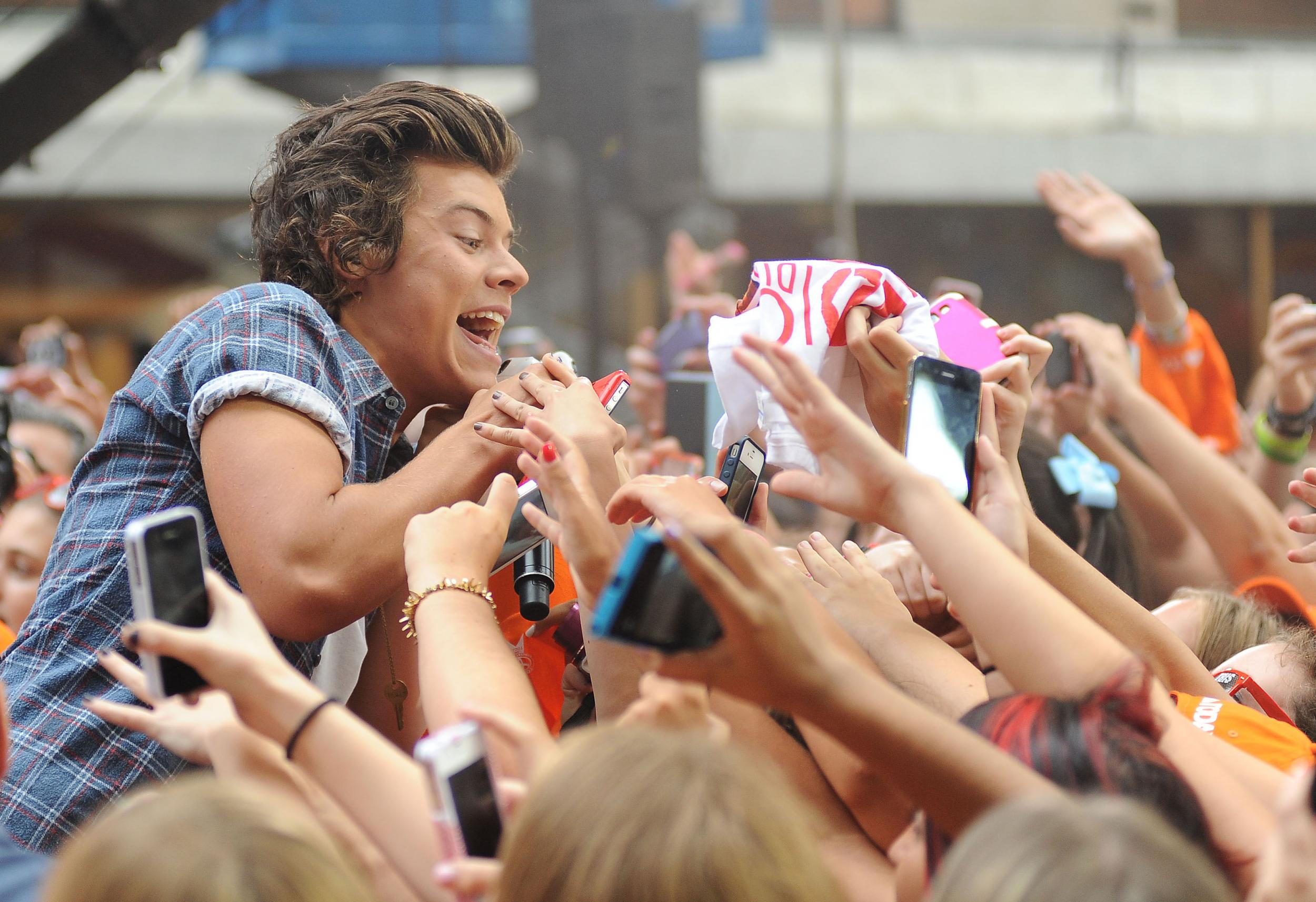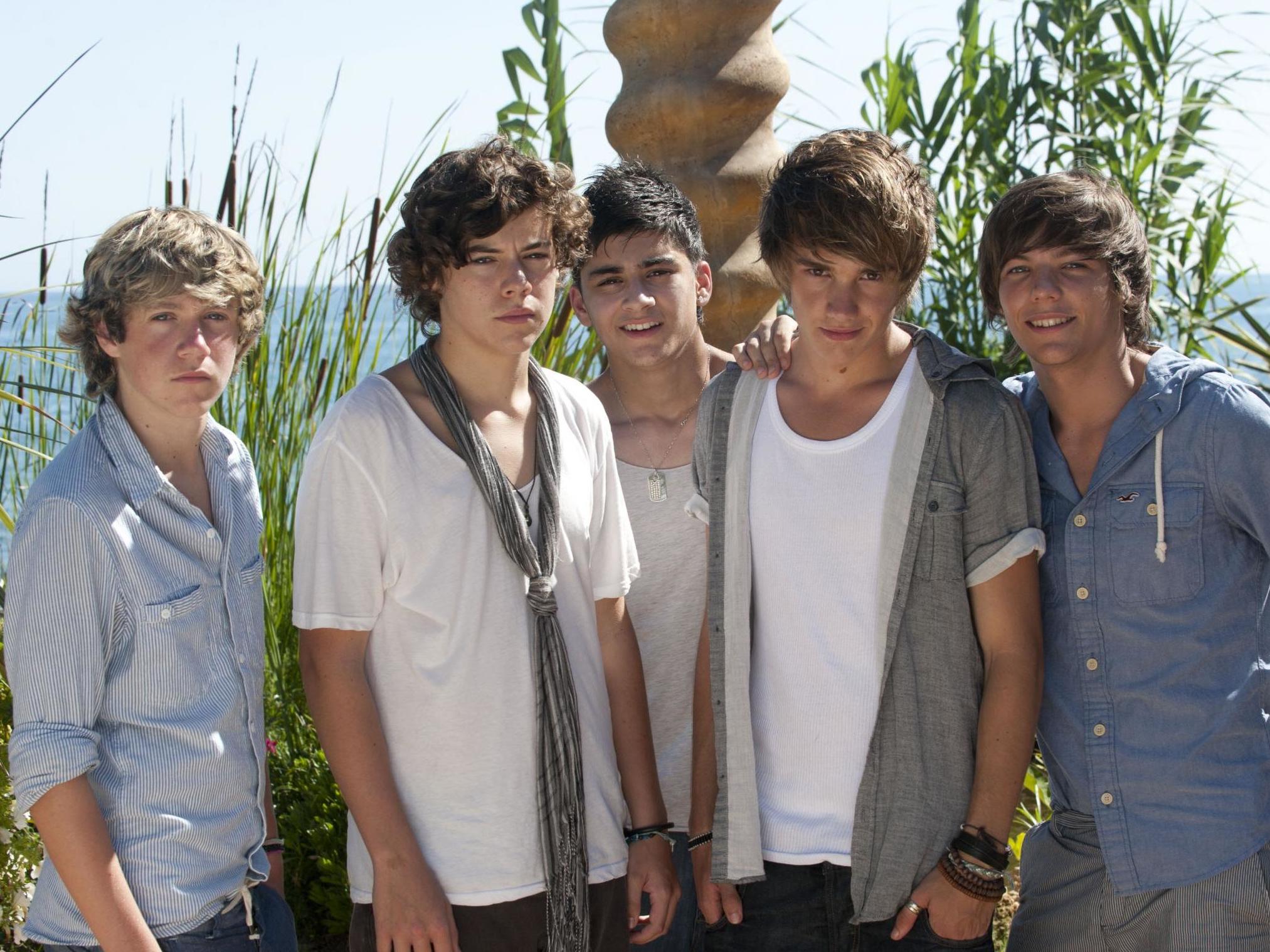Tears, passion and poetry: My teenage years as a One Direction superfan
For a long time, Isobel Lewis hid all traces of her past life as a teenage One Direction fan – but learning to look at her past obsession with kindness rather than embarrassment has been an important step in self-acceptance


Of all my teenage phases, my secret past life as a One Direction mega-fan is by far the most embarrassing. Ten years ago, as Harry Styles, Liam Payne, Louis Tomlinson, Niall Horan and Zayn Malik were put together on The X Factor, I found myself emerged in an online community obsessed with these five boys and willing to do anything for them to succeed. Powered by Tumblr and hormones, I talked, dreamt and thought about nothing else.
Given the levels of success that One Direction went on to achieve – The world tours! The awards! The film! – it’s hard to remember a time when they weren’t the biggest band in the world. But in those early years, fans took whatever they could; when you’re obsessed with a band who haven’t actually released any music, you become resourceful. Old X Factor performances and behind-the-scenes videos were pored over obsessively, magazines scoured for clippings and Twitter searched for any news about the band’s members. While my obsession pushed away friends in real life, it drove me online to a community of fans, inventively named the Directioners, who were just like me. My parents were sceptics and pointed out that I wouldn’t feel this way forever, but I didn’t care. For the first time, I felt like I’d found my people.
What drew me to One Direction was the same thing that has always attracted teenagers to boys in bands. They had that “boy you fancied in the year above at school” charm, all floppy hair and chinos, and sang generic lyrics expertly manufactured in a Swedish studio to make you believe you were being directly addressed. With hindsight, releasing a debut single with the refrain: “You don’t know you’re beautiful/ That’s what makes you beautiful” seems incredibly transparent, but at the time it spoke to insecure teenage girls everywhere. That the boys used their fame to date models, actors and other glossy-haired, glossy-legged women didn’t bother me, because I knew that what they really thought was that “being the way that you are is enou-ou-ough” and that they fancied girls who “still have to squeeze into their jeans” (“Little Things”).
Like many people do when they try and reinvent themselves, I mostly scrubbed my teenage years from memory, but the ones as a 1D fan pervade. I remember listening to the first play of “Gotta Be You” on Radio 1 on my bus into school and crying my mascara off. A picture of me sat by my poster-covered walls was published in Top of the Pops magazine. I wrote a poem to Louis Tomlinson for his birthday. I felt everything so much and had no outlet for that emotion, so projected it back onto the band and the community I felt understood me.
Life became about countdowns – days until the next show, song release, music video. I saw One Direction three times from 2010 to 2012: once at The X Factor live tour, when they sung alongside actual winner Matt Cardle and a bongo-playing Wagner, once at the Radio 1 Teen Awards, when they had a back-catalogue of two singles to perform, and finally on the Up All Night tour in January 2012. They had one album out and despite it being a seated concert, the Cardiff Arena audience all stood on their chairs, desperate to memorise every second to replay over and over again. I cried (a lot) in between the screaming and afterwards whispered to my friend: “I think Harry is my favourite,” as though saying those words out loud was a betrayal of the others.

In that moment, watching that concert, I truly believed that I loved One Direction more than anyone else on the planet did. But just a few months later, I found myself losing interest. With actual music to show for (who ever heard of someone stopping being a fan because their favourite band was producing too much content?), 1D were attracting a younger and more international audience and the online fan community which I’d once sought comfort in felt childish and immature.
Now that they had a massive US market to tap into, the boys started spending more time across the pond and I found myself noticing the blatant cash grabs my parents had pointed out to me. I will never forget flipping through the Argos catalogue to see a 1D-branded crimper offering to singe the band’s arrow logo onto the owner’s hair: an image burnt not just onto that poor model’s ponytail but into my memory.
“The time between The X Factor tour and Up All Night being released was the best time to be a 1D fan,” I tweeted, nostalgic and embittered at the age of 15. I looked back at my past obsession with embarrassment, and rejected it by ripping down my posters, illegally copying every My Chemical Romance and Green Day CD my local library owned onto my family iTunes library and dying my hair black, obviously.
Until recently, I didn’t move from that stance; I had never listened to One Direction’s second, third, fourth and fifth albums. But as the years have passed and the members have released their solo projects – to varying degrees of success – I’ve found myself revisiting these records once lost to me. Ignoring them had been a way of hiding from and rejecting my embarrassing past; listening to these albums was a step on the path to acceptance. What I found was catchy, well-written pop. While my feelings towards 1D as an entity had changed, I still liked the music for the same reasons I ever did. Because it was mainstream and aimed at teenage girls, the “I’m not like the others” voice inside me had decided it was bad music – but that wasn’t what I found.
Enjoy unlimited access to 100 million ad-free songs and podcasts with Amazon Music
Sign up now for a 30-day free trial. Terms apply.
ADVERTISEMENT. If you sign up to this service we will earn commission. This revenue helps to fund journalism across The Independent.
Enjoy unlimited access to 100 million ad-free songs and podcasts with Amazon Music
Sign up now for a 30-day free trial. Terms apply.
ADVERTISEMENT. If you sign up to this service we will earn commission. This revenue helps to fund journalism across The Independent.
I don’t think I’m alone in going on this journey. Look at any Harry Styles gig and you’ll find an audience full of women in their mid to late twenties – former fans, now appreciating the music for what it is. It’s a small act of rebellion in the face of the idea that we should be ashamed of our former fangirl experiences and that young fans should be ashamed of themselves.
My One Direction fan years were hormone-driven and a bit embarrassing, but that doesn’t mean that my love for the band in that moment wasn’t valid. Being able to laugh at it is better than pretending it never existed. Within reason, obviously. I’m taking that Louis Tomlinson poem to the grave.
Join our commenting forum
Join thought-provoking conversations, follow other Independent readers and see their replies
Comments
Bookmark popover
Removed from bookmarks